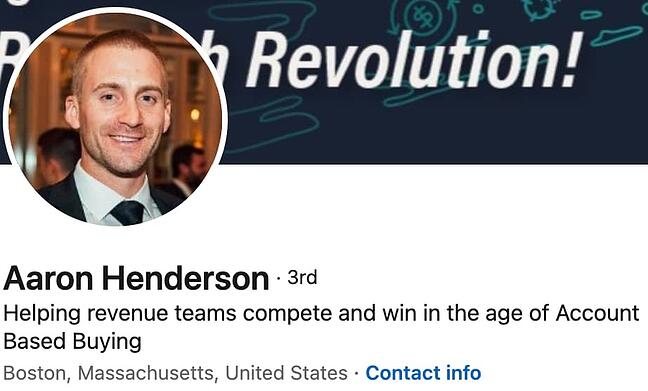
China has been a consultant for the government since 2003. To avoid being held liable, consultants must follow strict guidelines about the scope and purpose of their work. Consulting mistakes can result in criminal and civil liability as well as a loss of reputation. These guidelines will ensure your consulting services are not too far from the goals.
China's government has been consulting for the government since 2003
Since 2003, the Chinese government has been working with the government to solve the country's problems. The country faces dire economic challenges and must be reformed to avoid falling into a "middleincome trap," where the average economic rate falls drastically as middle-income countries struggle with innovation and new sources of economic development.

Injuries can be incurred by civil and/or criminal liability for consultant mistakes
A consultant's mistakes could result in civil or criminal liability for the company. They may also cause organizational conflicts of interests. Companies need to ensure that consultants are well-informed about the risks they pose and that they adhere to the contract. Regular written activity reports and oral briefings can help to do this. An agreement that limits the scope of work for consultants should include reporting obligations and a clause that allows for immediate termination in case of non-compliance. It is important that the contract clearly defines the restrictions that apply, including any prohibitions on lobbying, using proprietary data or consulting for rivals.
A company's reputation can be damaged by mistakes made by its consultants. This could prevent them from being eligible for future procurements. Companies should carefully screen and supervise their consultants throughout the engagement. The consulting agreement should also clearly state what services and prohibited actions are included.
Reputational damage can result from mistakes made by consultants
A company's reputation for providing government consultancy can be seriously damaged by mistakes made by consultants. McKinsey's recent scandal highlights the risks of outsourcing overseas businesses. These firms operate almost entirely under secrecy with very little public accountability. It was a well-known firm that served as an advisor to many businesses, and was a prominent unseen force in government consulting. The firm's failures under GDPR caused it to be fined hundreds and thousands of pounds, as well as damage to its reputation.

Clients demand more transparency in their work and greater accountability. This shift stems from the financial crisis, which forced companies to cut their external consulting spending. Since then, clients have kept a close eye on their consultants and focused their attention on their value to their organization.
FAQ
What happens after the consultant has finished the job?
After the consultant completes the work, s/he will submit a final report detailing the results of their work. This report will include project timelines and deliverables as well as any other relevant information.
You will then review the report to determine if the consultant fulfilled your expectations. If you are not satisfied with the consultant's report, you have the option to ask for modifications or to terminate your contract.
How did modern consulting come to be?
The first consultants were accountants that helped companies manage finances. Their skills in managing financial information led to them being called "accounting consultant". The role soon expanded to include other areas, including human resources management.
The French word meaning "to advise" in French is what gave rise to the term "consultant". This term was originally used by businessmen to denote someone who could give guidance on how to run an enterprise. In fact, most business owners today still use the word consultant when referring to any kind of professional advisor.
How can I become a successful consultant
It is important to identify an area of passion. First, build relationships. It is crucial to learn about your clients and understand their needs. Finally, you must deliver results.
While you don’t have to be the greatest at everything, you have to be better than everyone else. You also need to have a passion for what you do. It doesn't suffice just to say "I'm going be a Consultant." You must believe in yourself.
Statistics
- "From there, I told them my rates were going up 25%, this is the new hourly rate, and every single one of them said 'done, fine.' (nerdwallet.com)
- WHY choose me: Why your ideal client should choose you (ex: 10 years of experience and 6-week program has helped over 20 clients boost their sales by an average of 33% in 6 months). (consultingsuccess.com)
- According to statistics from the ONS, the UK has around 300,000 consultants, of which around 63,000 professionals work as management consultants. (consultancy.uk)
- 67% of consultants start their consulting businesses after quitting their jobs, while 33% start while they're still at their jobs. (consultingsuccess.com)
- On average, your program increases the sales team's performance by 33%. (consultingsuccess.com)
External Links
How To
How do I start a consultancy company?
A consulting business is a great way of making money online. You don't have to have any business experience. Building a website is a great place to start a consulting business. To promote your services, you will need to create a website.
You can create a marketing strategy that includes these things with these tools
-
Writing content (blogs).
-
Establishing connections (contacts)
-
Generating Leads (lead generation forms).
-
Selling products via ecommerce websites
Once you've developed your marketing strategy, you'll need to find clients who will pay for your services. While some prefer to network through events and networking groups, others prefer to use online tools like Craigslist or Kijiji. The choice is up to you.
After you have found new clients, it's important to discuss terms and payment options. This could include flat fee contracts, hourly fees or retainer agreements. It's important to know what you expect before accepting a client so you can communicate clearly throughout the process.
An hourly contract is the most popular type of contract for consulting services. You agree to offer certain services at a fixed fee each month or every week. You might be able, depending on which service you offer, to negotiate a discount. It is important to understand the terms of any contract you sign before you sign it.
Next, you will need to create invoices that you can send to your clients. Invoicing can be a complicated task until you actually attempt it. There are many ways to invoice clients. It all depends on your preference. For example, some people prefer to have their invoices emailed directly to their clients, while others print hard copies and mail them. Whatever your preferred method, make sure it works well for you.
After you've finished creating invoices, you'll want to collect payments. PayPal is the most popular payment option because it's easy to use and provides multiple payment options. Other payment processors, like Square Cash or Google Wallet, Square Cash or Apple Pay, Venmo and Venmo are also available.
Once you are ready to start collecting payments, it is time to open bank accounts. You can keep separate checking and savings accounts to track income as well as expenses. You can also set up automatic bank transfers to pay bills.
It can seem daunting to start a consulting business. But once you understand how it works, it becomes second nature. Our blog post contains more information on how to start a consulting business.
Starting a consulting firm is a great way to earn extra cash without worrying about employees. Consultants can work remotely so they don't have the hassle of dealing with office politics and long working hours. You have more flexibility than traditional employees because you aren't tied down by work hours.